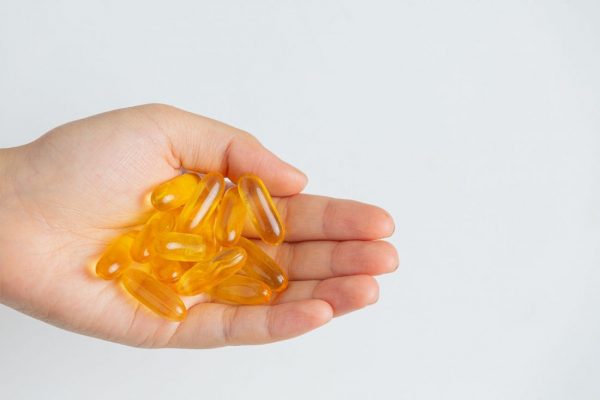
Purinethol (Mercaptopurine)
Purinethol
(Brand Option)
Select Quantity
$122.00 ($4.88 per tablet)
$467.00 ($4.67 per tablet)
Mercaptopurine
(Generic Alternative)
Select Quantity
$130.00 ($1.30 per tablet)
Lower Costs and Easier Access
Enjoy the Canadian benefits of both.
You can buy Purinethol from Canada on DoctorSolve.com without leaving the comfort of your home. DoctorSolve™ has been a trustworthy choice for online pharmacy needs in the United States since 1999.
We offer competitive Canadian prices for Purinethol, helping you save thousands of dollars on your medication each year. DoctorSolves™ reputation for exceptional service is backed by a remarkable 4.8/5 customer rating and 655+ positive reviews.
DoctorSolve™ is verified by Canadian International Pharmacy Association (CIPA) and International Pharmacy Association of British Columbia (IPABC). We prioritize your health by requiring a valid prescription from a healthcare provider, ensuring Purinethol is appropriate for your condition.
If you prefer speaking to a support staff, call +1-866-732-0305 to order Purinethol or fax your prescription to 1-877-251-1650. Our support staff are prompt and will answer all your queries professionally.
Purinethol (mercaptopurine) is indicated for the treatment of acute lymphoblastic leukemia (ALL) in both adult and pediatric patients as part of a combination chemotherapy maintenance regimen. It is used to help maintain remission and prevent the recurrence of ALL.
Do’s
- Read the Patient Information Leaflet that comes with the medication before you start taking Purinethol and each time you get a refill. If you have any questions, ask your healthcare provider.
- Take Purinethol by mouth with or without food as directed by your healthcare provider, usually once daily.
- Drink plenty of fluids while taking this medication, unless otherwise instructed by your healthcare provider. This can help decrease the risk of certain side effects, such as kidney problems.
- If you are using the suspension form of Purinethol, make sure to shake the bottle well for at least 30 seconds before each dose. Use the special measuring device provided to carefully measure the dose.
- If you accidentally get any of the suspension on your skin or in your eyes, wash the affected area or rinse your eyes with water. For more specific instructions, consult your healthcare provider.
- The dosage of Purinethol is determined based on your medical condition, weight, and response to treatment.
- Take Purinethol regularly at the same time each day to get the most benefit from the medication. This can also help you remember to take it consistently.
Don’ts
- Avoid using a household spoon when measuring the suspension form, as it may not provide the correct dose.
- Do not increase your dose or use the medication more often or for longer than prescribed by your healthcare provider. Taking more than the recommended dose can increase the risk of serious side effects without improving your condition any faster.
- As Purinethol can be absorbed through the skin and lungs and may harm an unborn baby, women who are pregnant or may become pregnant should avoid handling the medication or breathing in the dust from the tablets.
- Allergic reactions: These may include skin rash, itching, hives, swelling of the face, lips, tongue, or throat.
- Infections: Purinethol can lower your body's ability to fight infections. Symptoms of infection may include fever, chills, cough, sore throat, wounds that don't heal, pain or trouble when passing urine, and a general feeling of discomfort or being unwell.
- Liver injury: Signs of liver injury may include right upper belly pain, loss of appetite, nausea, light-colored stool, dark yellow or brown urine, yellowing of the skin or eyes, and unusual weakness or fatigue.
- Low red blood cell level: This can cause symptoms such as unusual weakness or fatigue, dizziness, headache, and trouble breathing.
These are not all the possible side effects of Purinethol. If you are taking Purinethol and experience any unusual symptoms or side effects, report them to your healthcare provider as soon as possible.
Purinethol may interact with other medications you are taking. Consult with a healthcare provider before starting or stopping any medication or changing your treatment plan.
Purinethol can cause myelosuppression, which is a decrease in the production of blood cells. This can result in anemia, low platelet counts, or low white blood cell counts. Regular monitoring of blood counts is necessary, and the dose of Purinethol may need to be adjusted if excessive myelosuppression occurs.
Consideration of testing for TPMT (thiopurine S-methyltransferase) and NUDT15 (nudix hydrolase 15) deficiency is recommended in patients who experience severe myelosuppression or repeated episodes of myelosuppression. Patients with homozygous deficiency of these enzymes may require a reduced dosage of Purinethol.
If you are allergic to Purinethol or any of its components, inform your healthcare provider.
Purinethol is a cytotoxic drug, and special handling and disposal procedures should be followed to ensure safety.
This is not an exhaustive list of warnings and precautions associated with Purinethol. Consult with your healthcare provider for personalized advice and information regarding the use of Purinethol.
| Generic name: | Mercaptopurine, Mercaptopurine |
|---|---|
| Formulation: | Tablet |
| Strength(s): | 50mg |
| Quantities Available: | 25, 100 |


Excellent Customer Care We Are Here for You
Guiding you every step of the way, ensuring access to affordable medicines. Our customer service team is available seven days a week to answer any questions or to address any concerns you may have. Please give us a call at Doctor Solve on Monday to Friday from 6am-8pm PST, or Saturdays and Sundays from 7am-5pm PST.










